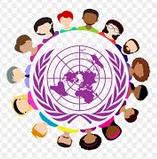2023-03-14
We Brits have long looked on as "our" government progressively moved the goalposts to introduce "relationships" learning into our schools curriculum, at each stage widening the definition and insisting on ever earlier engagement with our kids, right down to primary school age. I'm not sure whether "Drag Queen Story Hour" has yet materialised into the curriculum but I've reached the understanding that there are no limits other than those that we the people will set, by protest and non-compliance.
To say that this is an agenda which the vast majority never asked for and which has been introduced as quietly as possible is a reflection of how "our" government operates in multiple areas - in fact this has become (or perhaps always was) their de facto modus operandi. More and more we the people are reduced to mounting spontaneous rearguard actions against their most egregious projects, whist many others less immediately provocative slip through without any great protest.
We could draw the conclusion that our government is driven by protest groups (he who shouts loudest etc) but if so they are very picky about which protest groups they choose to recognise. Extinction Rebellion and Black Lives Matter are in the favoured category, whereas those who merely protested in favour of keeping their traditional (and lawful) freedoms intact during the lockdowns were dealt with harshly.
All of which makes us wonder - who does "our" government work for, and why? Clearly the answer is "not us".
A salient clue is that many "western" governments seem to be following similar agendas, and we don't have to look far to identify the Universal Nanny responsible.
So are we living already under a one world government? When did we vote for this arrangement?
The Centre for Family and Human Rights explores the UN labyrinth of "progressive universal ethics" - words that many may think have been appropriated to mean the opposite of their original connotation.
The closest I can come to a description of the UN's preferred "ethics" is by the then Secretary General Kofi Annan given in a speech in 2003 at Tübingen University, Germany - but clearly you should make up your own mind about its relevance to UN ethics today.
“When I use a word,’ Humpty Dumpty said in rather a scornful tone, ‘it means just what I choose it to mean - neither more nor less"
Obviously a prime candidate to be appointed the next Secretary General.



